Random Thoughts on Dragon*Con, Fandom and Spirituality
I haven't blogged in a long time. Got busy, time passes, no self-discipline bloggerwise, etc. But I did want to mention one of the biggest revelatory experiences I've had in a long time: attending my first fan convention. It was Dragon*Con 2013 in Atlanta at the end of August. It was just soooooo different from anything I had experienced up to that point.
I was there ostensibly for research. I'm working on book #2, but book #3 will be about fandom because it's really fascinating to me. Here's my working premise: over the past 50-70 years in the West, traditional religious institutions have become more and more delegitimized as centers for the making and circulation of cultural and religious meanings. But that doesn't mean that we are becoming less religious (as the "secularization thesis" predicted). It means that cultural/religious meaning-making and meaning-circulation is happening in other forms. Principal amongst these is popular culture. And the place where this is most obvious is (*drum roll*) FANDOM! That is why I am interested in the assorted geeks and nerds who go to these cons. And at the end of August, I briefly became one of them (we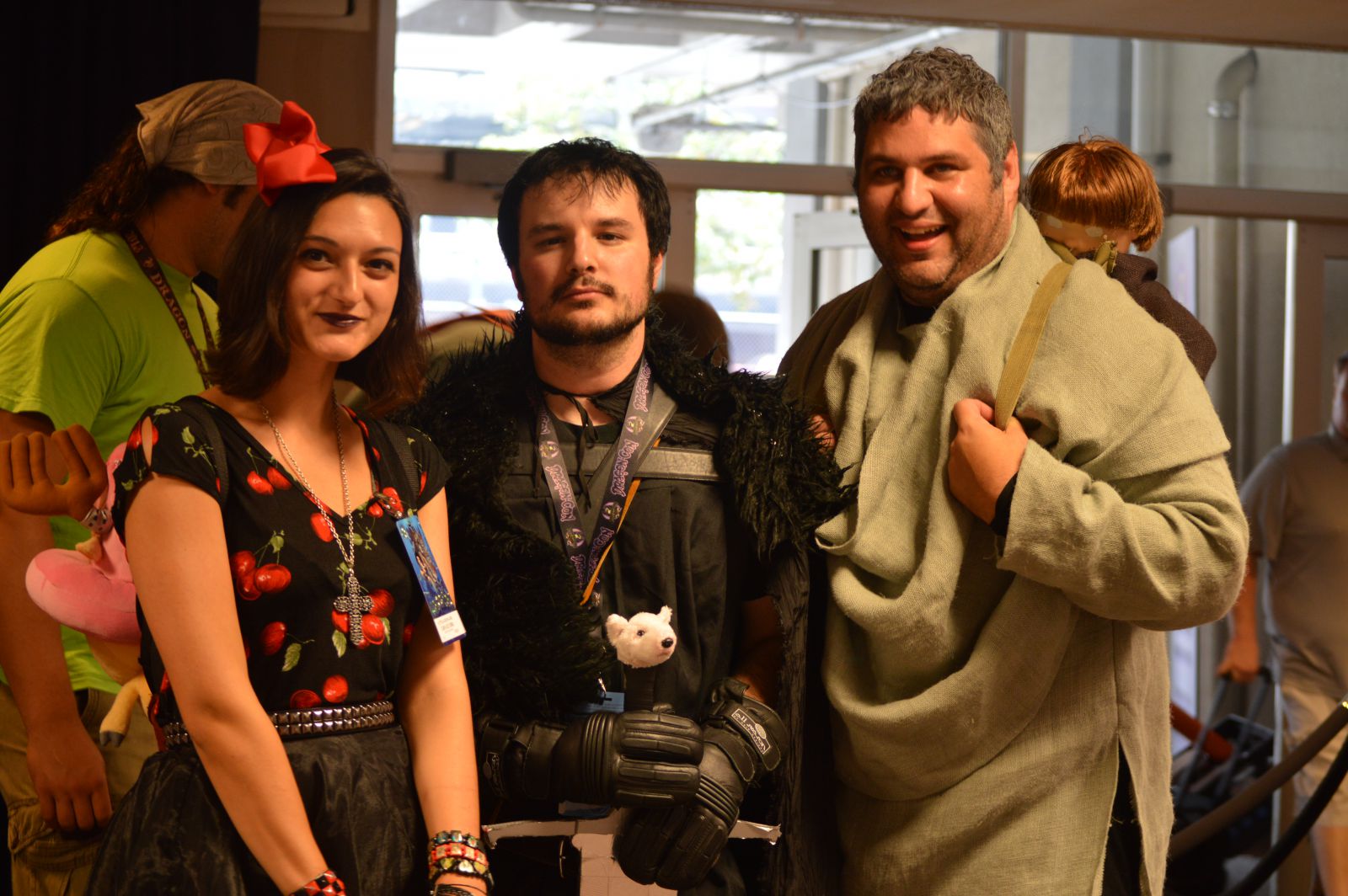
So here are some of my random observations about the whole con-experience in no particular order:
1. Most recurring thought in my head: "So many nerds. So many nerds." We were, from the instant we got off the metro, awash in a sea of geeks and freaks and nerds. Colors from costumes everywhere. Weirdness everywhere. And it was pretty wonderful. There really is something about safety in numbers. The townees look on and watch the freakshow, but it doesn't matter. Here is where nerds come to be safe. Here is where they can be observed in their native habitat. Which leads to observation #2.
2. Most of these nerds are really nice, supportive people. We waited for a long time in line. We got the chance to photograph some of the more epic costumes. And if you asked people, they'd usually oblige with a smile. Waiting for hours in line, you get a feel for the crowd. These are good people, nice to talk to, they help one another out, etc. And there is ab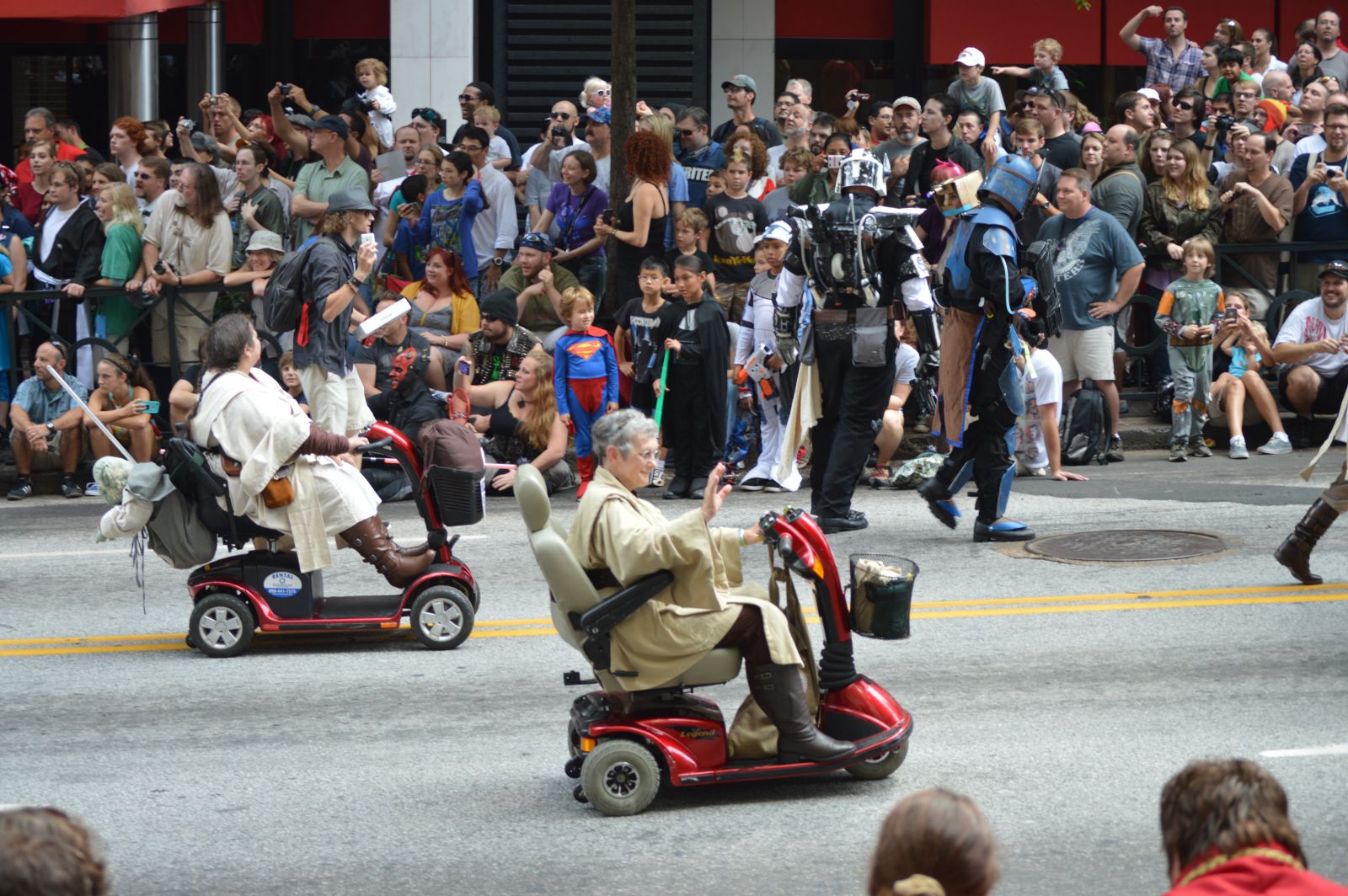
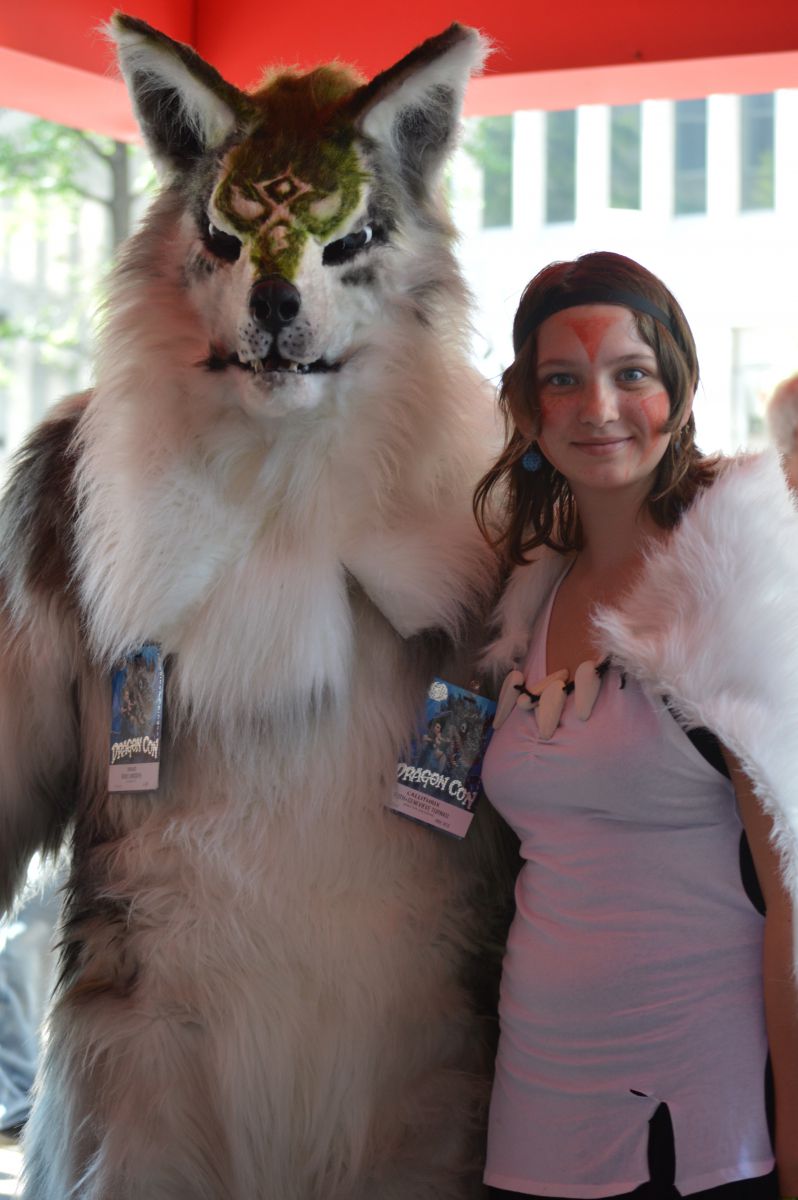
3. Fandom for many, many of these nerds is deeply meaningful, even spiritual. For my research, I conducted a handful of interviews with random fans, some Christian, some not. The results were suprising. Most of the non-Christian fans grew up in church (usually Southern Baptist; not surprising given it's held in the south-east). Many wandered away from the faith because it seemed restricting, judgmental, or just didn't give the answers to the questions they were asking. And many of them found answers and community in their fandom. One woman I interviewed said 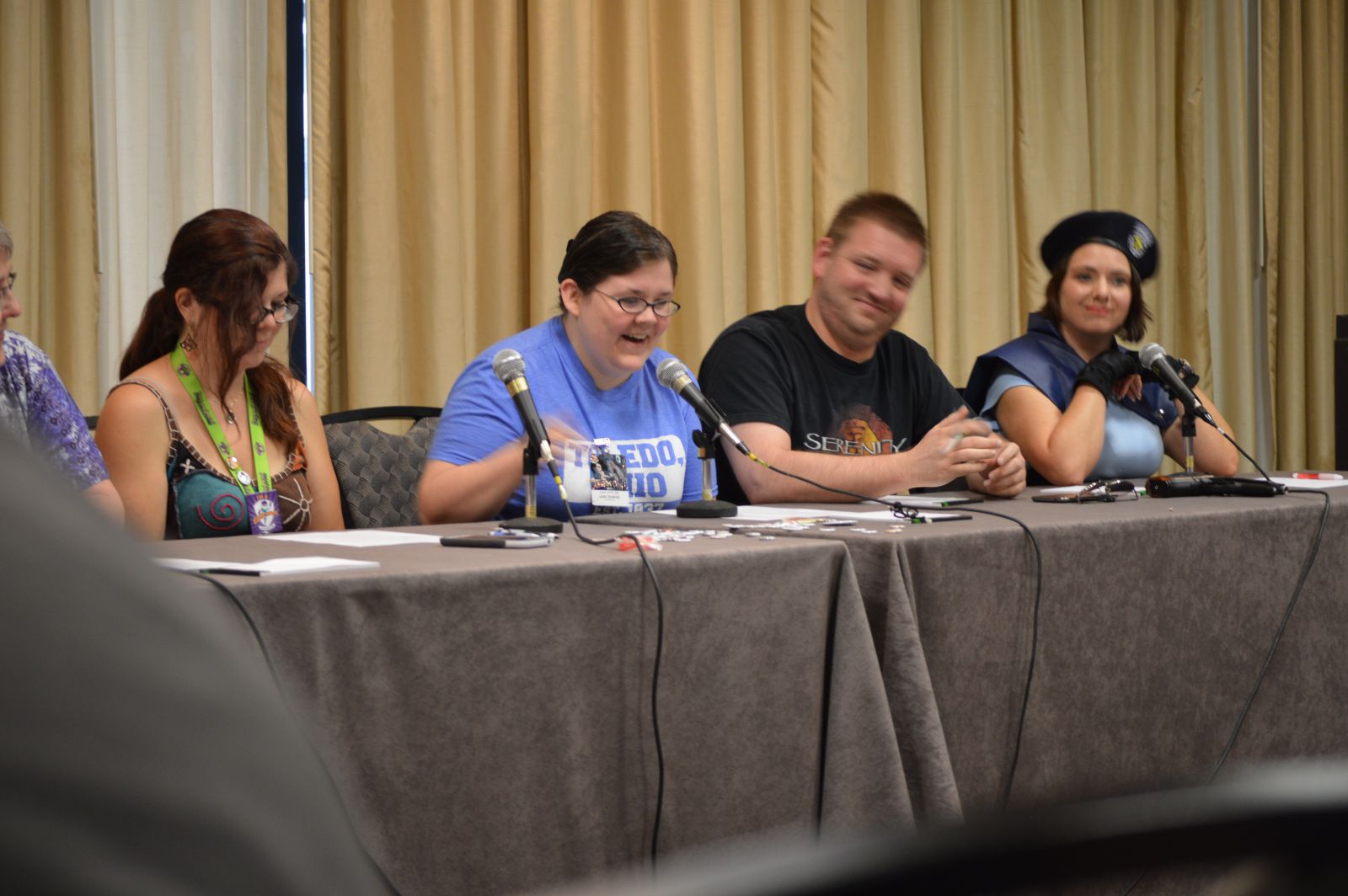
By the way, if you'd like to sound off on your own experience with fandom and spirituality, please take my survey (you may even be quoted in the book eventually): http://surveymonkey.com/s/fandom_and_spirituality (Of course, by reading this blog-post, I've tainted you. No worries - internet surveys are notoriously unreliable as quantitative guides. I'm just interested in your stories and experiences).
4. You want to communicate and reach fans? You gotta be a fan. After the big cosplay parade, the streets became occupied with local evangelists with bullhorns came out and shouted the gospel at the fans. One had a big sign that said, "Hulk say, 'If you don't repent, Devil smash you in Hell!!!" while shouting that Jesus will forgive their sins through the bullhorn. That was the evangelist being "culturally sensitive." Not. It would have been better if they guy had been shouting the names of random vegetables. At least he would have been amusing. As it was, he was just coming across as offensive and judgmental. He was doing more harm than good (and patting himself on the back, telling himself that he was being "bold" for the sake of the gospel). Such people DO NOT communicate the gospel to fans. They communicate condemnation and cultural insensitivity. My daughter overheard one convention-goer muttering to his friends, "We don't barge into their churches. Why do they invade ours?" (See point 3). Fandom is a remarkably gospel-resistant subculture (or rather, collection of subcultures). It is populated by people who are familiar with the feeling of being judged as inferior, and they are sick of it. Anyone who wants to speak hope and compassion to these folks needs to speak their language, and understand what they regard as sacred, and why.
I was encouraged to see a culturally contextualized group of Christians trying to do better: .jpg) http://www.fansforchrist.org/new/index.php. Game Church, though more specialized, is also in the mix: http://gamechurch.com/. They are both pretty tiny and underresourced, but they exist. And they are committed to being good fan citizens, and good, supportive people within fandom. I took comfort in that. Were I going to stay in the States, I'd be plunging myself into the con scene along with them, cause it's a huge, growing and largely ignored mission field. Plus, fandom is awesome and fun. So here's hoping my (future) book will eventually be a resource for them, as well as for fans outside the faith.
http://www.fansforchrist.org/new/index.php. Game Church, though more specialized, is also in the mix: http://gamechurch.com/. They are both pretty tiny and underresourced, but they exist. And they are committed to being good fan citizens, and good, supportive people within fandom. I took comfort in that. Were I going to stay in the States, I'd be plunging myself into the con scene along with them, cause it's a huge, growing and largely ignored mission field. Plus, fandom is awesome and fun. So here's hoping my (future) book will eventually be a resource for them, as well as for fans outside the faith.
So, those are my thoughts. Christians could learn a thing or two from fans. And fans could learn a thing or two from Christ (however badly communicated by Christians). But mostly, there's a lot going on in fandom spiritually. And that's worth exploring further. So that's what I'm going to do.
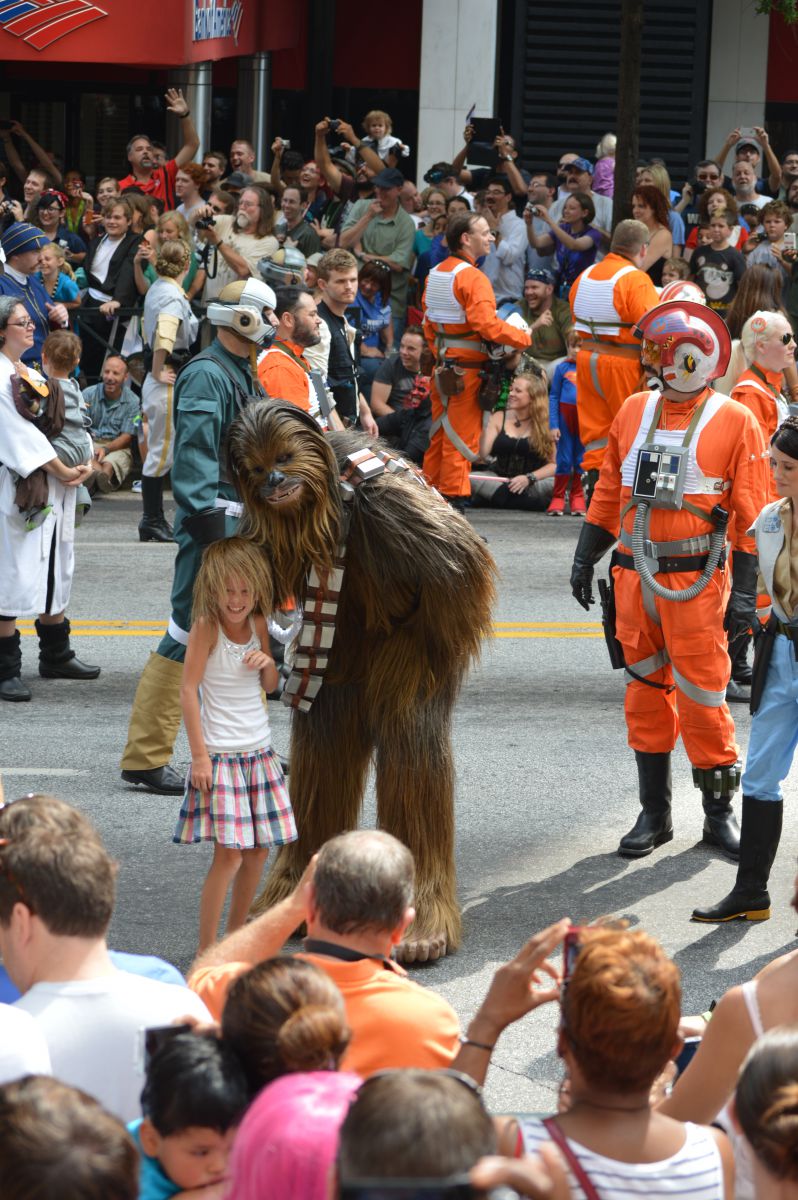
Recent comments
7 years 47 weeks ago
9 years 7 weeks ago
9 years 24 weeks ago
9 years 24 weeks ago
9 years 27 weeks ago
9 years 36 weeks ago
9 years 37 weeks ago
10 years 11 weeks ago
10 years 25 weeks ago
11 years 2 weeks ago